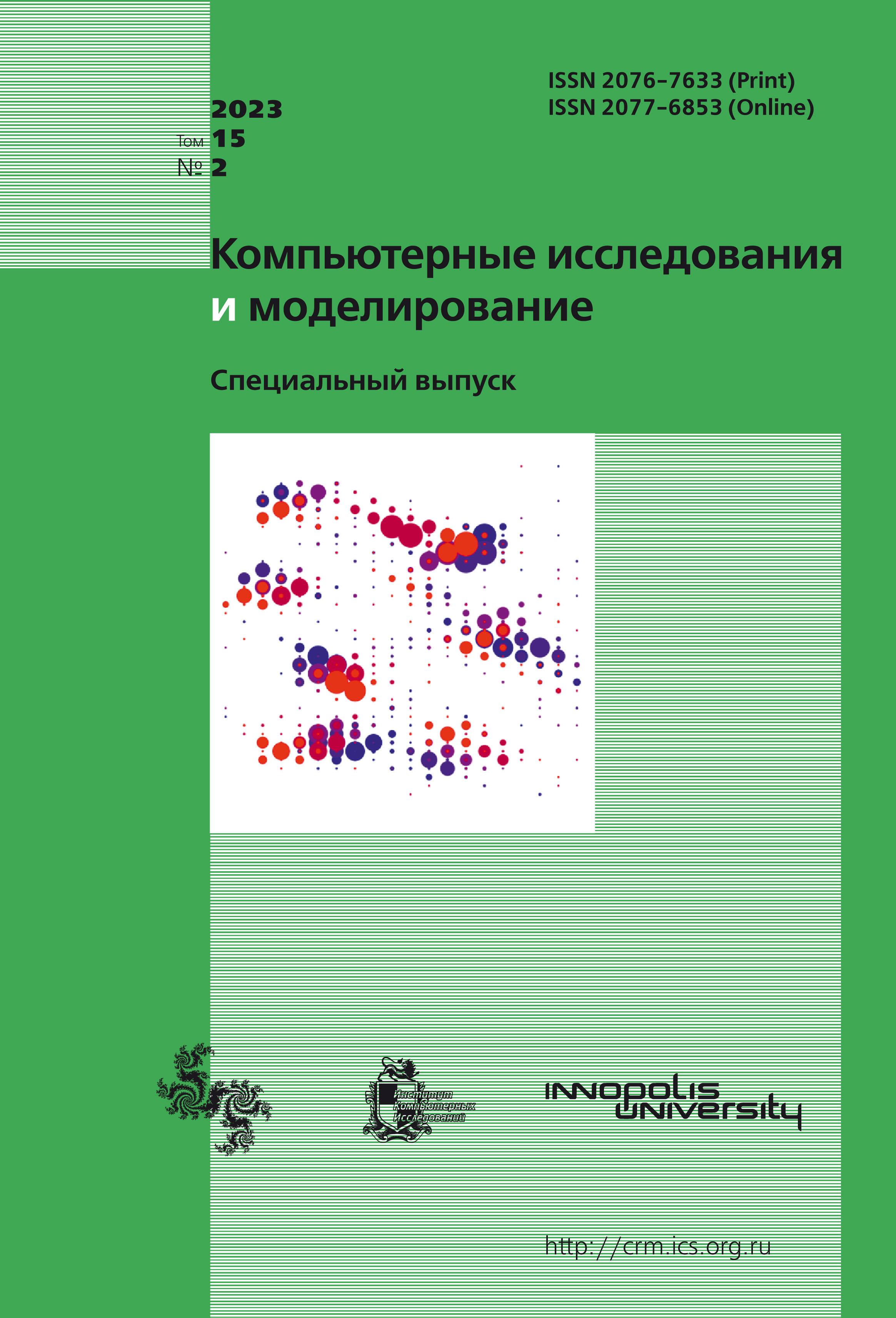All issues
- 2025 Vol. 17
- 2024 Vol. 16
- 2023 Vol. 15
- 2022 Vol. 14
- 2021 Vol. 13
- 2020 Vol. 12
- 2019 Vol. 11
- 2018 Vol. 10
- 2017 Vol. 9
- 2016 Vol. 8
- 2015 Vol. 7
- 2014 Vol. 6
- 2013 Vol. 5
- 2012 Vol. 4
- 2011 Vol. 3
- 2010 Vol. 2
- 2009 Vol. 1
Influence of the mantissa finiteness on the accuracy of gradient-free optimization methods
 pdf (6086K)
pdf (6086K)
Gradient-free optimization methods or zeroth-order methods are widely used in training neural networks, reinforcement learning, as well as in industrial tasks where only the values of a function at a point are available (working with non-analytical functions). In particular, the method of error back propagation in PyTorch works exactly on this principle. There is a well-known fact that computer calculations use heuristics of floating-point numbers, and because of this, the problem of finiteness of the mantissa arises.
In this paper, firstly, we reviewed the most popular methods of gradient approximation: Finite forward/central difference (FFD/FCD), Forward/Central wise component (FWC/CWC), Forward/Central randomization on $l_2$ sphere (FSSG2/CFFG2); secondly, we described current theoretical representations of the noise introduced by the inaccuracy of calculating the function at a point: adversarial noise, random noise; thirdly, we conducted a series of experiments on frequently encountered classes of problems, such as quadratic problem, logistic regression, SVM, to try to determine whether the real nature of machine noise corresponds to the existing theory. It turned out that in reality (at least for those classes of problems that were considered in this paper), machine noise turned out to be something between adversarial noise and random, and therefore the current theory about the influence of the mantissa limb on the search for the optimum in gradient-free optimization problems requires some adjustment.
Copyright © 2023 Vostrikov D.D., Konin G.O., Lobanov A.V., Matyukhin V.V.
Indexed in Scopus
Full-text version of the journal is also available on the web site of the scientific electronic library eLIBRARY.RU
The journal is included in the Russian Science Citation Index
The journal is included in the RSCI
International Interdisciplinary Conference "Mathematics. Computing. Education"






